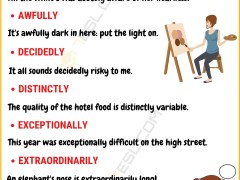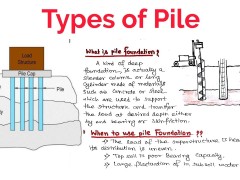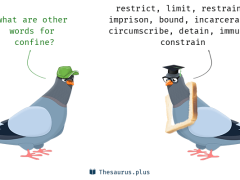unload [ʌnˈləud] v. 卸(货)
【例】The steel sheets and bars come in, as you see, in different sizes and are unloaded onto the delivery bay here.
就像您看到的,不同型号的钢板和钢丝运来了,都卸在运输车间。
【反】load 装货
wooden [ˈwudn] adj. 木制的
extremely [ikˈstriːmli] adv. 非常,极其
【扩】exceedingly 极端地,极其
* * *
A: The extremely unfavorable business has made me very depressed.
B: No one can be always successful.
A:事情极不顺利,真让我沮丧。
B:人不可能总是成功。
* * *
occur [əˈkəː] v. 发生
【派】occurrence 事件
【例】New Year's Day typically occurs sometime in early spring February.
新年通常在早春2月到来。
【扩】take place 发生,举行
astonish [əˈstɔniʃ] v. 使惊讶
【扩】emmarvel 使惊讶
【搭】be astonished at 对……感到惊讶,吃惊
* * *
A: What he did before astonished me.
B: He has changed a lot.
A:他之前的所作所为使我感到很惊讶。
B:他已经改了很多了。
* * *
pile [pail] n. 堆
woolen [ˈwulən] adj. 羊毛的
* * *
A: What can I do for you?
B: I want a woolen coat.
A:您想买什么?
B:我想要件羊毛大衣。
* * *
goods [ɡudz] n. (常用复数)货物,商品
* * *
A: How long can my goods reach here?
B: I can't reply now.
A:我的货要多久能够到这儿?
B:我不能马上给你答复。
* * *
discover [disˈkʌvə] v. 发现
【派】discovery 发现
【例】The fact is that he did not discover it.
事实是他没有发现它。
【扩】find 发现
admit [ədˈmit] v. 承认
【派】admitted 被承认了的
【扩】recognize 承认
* * *
A: I think you can't be more conservative.
B: I admit I always do business on the safe side.
A:我想,你太保守了吧。
B:我承认我做事总是多从安全方面考虑。
* * *
confine [kənˈfain] v. 关在(一个狭小的空间里)
【搭】confine sb. to 限制某人于……
* * *
A: Don't you think it's cruel to confine a bird in a cage?
B: Then what do you suggest me to do?
A:难道你不认为把鸟关在笼子里很残忍吗?
B:那你建议我怎么做呢?
* * *
normal [ˈnɔːməl] adj. 正常的,通常的
【派】normally 正常地,通常
【例】Under normal production and management, foreign investors will gain a profit higher than the average interest rate of international banking.
在正常生产和经营的情况下,外商投资者可获得高于国际银行平均利率的利润。
verb [vi. 不及物动词](从车、船上)卸,取下;退出,取出(子弹或胶卷等);<非正式>推卸(责任),甩掉(包袱);把(非法或不是很好的东西)脱手,抛售;倾诉,发泄;让(某人)下车,让(某人)下船;<非正式>射出(子弹);<美,非正式>猛击,猛打 - The truck driver was waiting to unload.
adjective [原级]木制的;(行为)僵硬的,呆板的;木头似的,木头特性的 - The pier is a wooden structure.
adverb [程度副词]极度,非常 - be extremely difficult / important / useful / complicated / pleased / grateful ...
extremely 把一个形容词或副词推到了极限,达到了无以复加的程度
- I am extremely tired. 我累极了
- But I was extremely pleased with myself. I had traced the cause of the trouble. NCE3-46
- Though it may be possible to measure the value of material goods in terms of money, it is extremely difficult to estimate the true value of the services which people perform for us. NCE3-27
verb [vi. 不及物动词](尤指意外地)发生;存在,出现;(想法)产生 - If headaches only occur at night, lack of fresh air and oxygen is often the cause.
① vi. 发生
- When did the accident occur?
② vi. 被想起,被想到
sth. occur to sb. 某人(突然)想起某事
- A good idea occurred to me. = I suddenly got a good idea.
It occured to sb. that… 某人想起了……
- It occured to me that I didn't finish my homework. 我想起我还没完成作业
It occurs to sb. to do sth. 某人想起了……
- It suddenly occurred to one of the workers to open up the box. 突然一个工人想到打开箱子看看
sth. occur to sb. 某人突然想起某件事 (从后面往前面翻)
- A good idea occured to me. = I have a good idea.
To do sth occur to sb. = It occurs/occurred to sb. to do sth.
- It occurs to me to call me to call my mom. 我突然想起来给我妈妈打个电话。
verb [vi. 不及物动词]使吃惊,使惊讶 - My news will astonish you.
如果一个动词跟人的情绪有关,则它的宾语是人,其形容词有两个:
令人 –ing;感到 -ed astonishing
adj. 令人惊讶 ; astonished adj. 感到惊讶的
- I am surprised. → astonished → astounded → shocked 惊讶程度递增
noun [专属名词]一堆,一叠;一大堆,大量;大笔钱财;(地毯的)绒面;地桩;宏伟建筑物;痔疮;(纹章)(尖头朝下的)楔形普通图记;电池组 - A pile of things is a quantity of things that have been put neatly somewhere so that each thing is on top of the one below.
verb [vi. 不及物动词]堆放;堆满;聚集;将(女子头发)高高盘起;蜂拥,拥挤;(车)撞(~ into);<非正式>夸大(~ something on);用桩加固(或支撑) - If you pile things somewhere, you put them there so that they form a pile.
adjective [原级]羊毛制成的;毛纺织业的 - She was demurely dressed in a black woollen suit.
noun [物质名词]毛织物,毛料织物 - He bursts into a breakfast diner with his hair under a woollen beanie.
noun [集合/集体]商品;动产,私人财产;<英>(公路、铁路等运输的)货物;<美,非正式>本领;<美,非正式>正要寻找的人(或物) - Prices are marked on the goods.
verb [vt. 及物动词]发现,找到;了解到,发觉,查明;发掘(人才);初次接触 - She discovered that they'd escaped.
verb [vi. 不及物动词](勉强)承认;招认,招供;准许进入(某处);接纳,接收(入学);收治,接收入院;承认…有效;容许,为…留有余地 - If someone is admitted to a hospital, they are taken into the hospital for treatment and kept there until they are well enough to go home.
① vt. 承认,供认
admit sth. / admit doing sth. 承认做某事
- I admit having lunch. admit that… 承认……
- Sally admitted that she had used your dictionary.
deny sth. /deny doing sth. 拒绝做……
② vt. 准许……进入,准许……加入
- Without a ticket you won’t be admitted into cinema.
- They won’t admit him into/to the government.
verb [vi. 不及物动词]限制,局限;防止…扩散;关押,监禁;使离不开(或受困于床、轮椅等) - Health officials have successfully confined the epidemic to the Tabatinga area.
noun [抽象名词]边界,范围;限制,局限 - He did not confine himself to the one language.
sb. was confined to + 地点
- sb. was confined to the room. 某人被关在某个地方
adjective [原级]正常的,标准的;(身心)健康的,(人)普通的;(线或线性特征)正交的,垂直的;(盐溶液)与血液的盐浓度相同的;正(断层)的;平常的,通常的 - The two countries resumed normal diplomatic relations.
noun [专属名词]常态,通常标准;<非正式>正常人,循规蹈矩者;法线,正交 - Under normal circumstances , I would say ‘yes ’.











